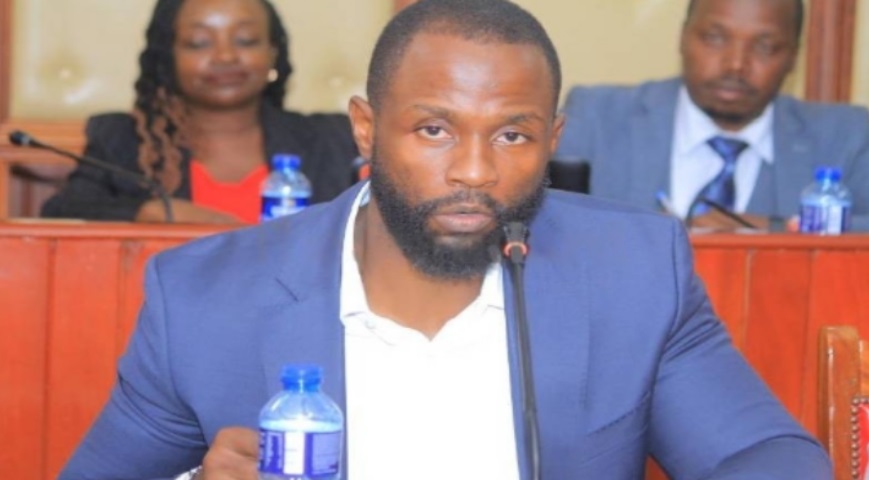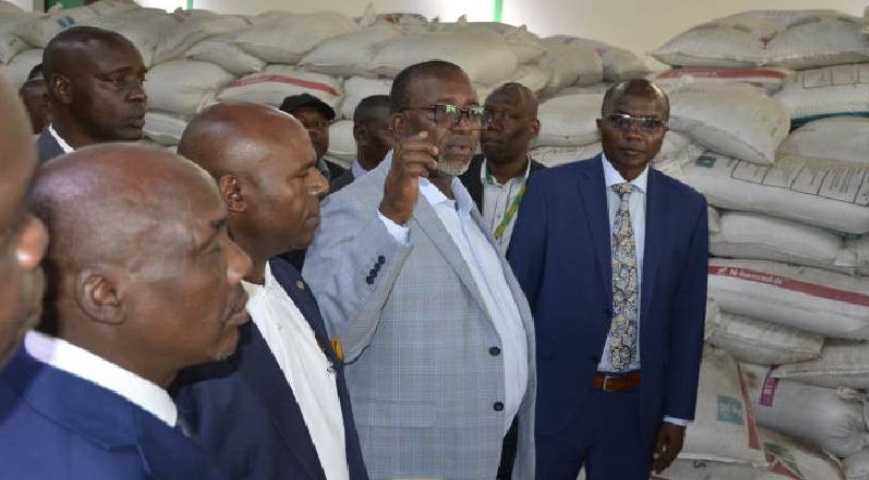During a session on Thursday with the Senate Agriculture Committee, renowned investigative journalist John Allan Namu of Africa Uncensored revealed attempts by influential political figures to suppress a story exposing the fake fertilizer scam.
Namu made sensational claims suggesting that senior officials from key government bodies in both previous and current administrations may have been involved in the scandal, prompting serious concerns about corruption in the country.
Namu disclosed, “I would like to inform this committee that politicians across the political divide might have been involved in this fake fertilizer conspiracy, some even reached out to me seeking to have African Uncensored not to air this story where the majority of those affected are small scale farmers,” highlighting the broad impact of the scandal, especially on small-scale farmers.

Did you read this?
The former KTN reporter also expressed his readiness to present evidence and testify in court regarding the specific politicians who attempted to obstruct his investigative efforts by offering incentives.
Namu's exposé detailed how a company packaging diatomite rocks received preferential treatment from the NCPB, allowing them to market their ineffective product as "subsidized fertilizer." Laboratory analysis revealed that the rocks and dust added no beneficial nutrients to the crops and, in some instances, were harmful.
The inquiry examined public procurement processes dating back to 2018, scrutinizing administrations from both the past and present. It aimed to understand how fraudulent activities transcended different government tenures, undermining the integrity of the agricultural sector.
Chairman of the Committee, Kirinyaga Senator James Murango, revealed that various key figures, including Agriculture Cabinet Secretary Mithika Linturi, and heads of the Kenya Bureau of Standards and Kenya National Trading Corporation, will be summoned to testify. Their testimonies are expected to shed light on the extent of the scandal.
Murango stressed the gravity of the situation, stating, “This is a very serious matter unlike doctors and advocates whom we may need several times in a year, we need farmers every day since they provide food to us, we cannot afford to allow a few unscrupulous individuals to get away with the fake fertilizer scandal,” and lamented the negative image cast upon Kenya due to the fraudulent acts.
Namu also condemned the Kenya Bureau of Standards (Kebs) and the National Environment Management Authority (Nema) for their inability to effectively address the counterfeit fertilizer problem. He attributed this failure to staff shortages, which he believes created opportunities for exploitation by unscrupulous individuals.

Namu’s call to journalists to pursue public interest stories with vigor was echoed in his statement, “I would like to tell my fellow journalists that they should not be cowed when they are pursuing stories of public interest like the one we did on fake fertiliser, they should stand up to be counted when fighting for the public good,” signifying the role of journalism in societal accountability.
Senators Samson Cherargei and Enoch Wambua emphasized the necessity for comprehensive investigations into the roles of Kebs, NCPB, KNTC, and NEMA in the scandal.
Cherargei highlighted the apparent involvement of a criminal or political enterprise in the scam, while Wambua proposed a deeper conspiracy. He called for a thorough investigation to reveal the full extent of collusion among state agencies and perpetrators.











